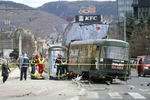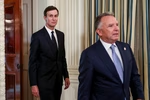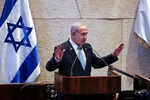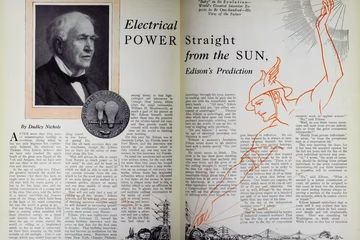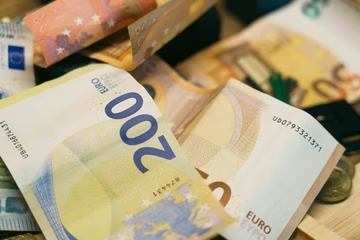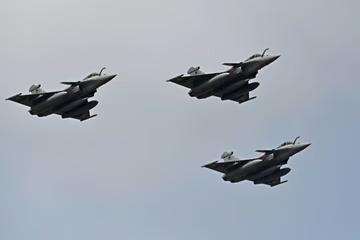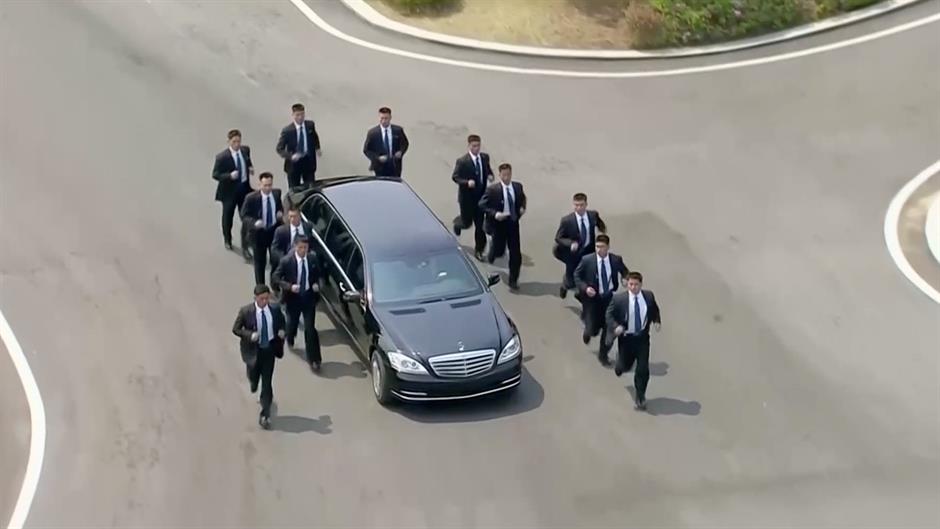
North Korean leader Kim Jong Un is visiting China on Tuesday and Wednesday, Chinese state media announced. It is Kim's first trip outside the country since his summit with US President Donald Trump in Singapore on June 12.
Some had been expecting Kim to visit China to brief President Xi Jinping on his meeting with Trump, the first between a North Korean leader and serving US President.
Kim did not leave his country for the first six years of his rule, but this trip to China, North Korea's only real ally, will be the young North Korean leader's third in three months. He traveled to Beijing in late March and to the northeastern city of Dalian in May.
It is rare for state media from either Beijing or Pyongyang to announce a trip by North Korea's leader ahead of time or as it is happening. Kim's other trips to China this year were revealed after the visits were completed.
A police-escorted motorcade was spotted on Beijing's Chang'an Avenue, which street runs past Tiananmen Square and near the Great Hall of the People. It is unclear who is joining Kim on the visit, or how he got to China. Kim took his family's armored train to the Chinese capital on his March visit. North Korean state media aired pictures of Kim inside the luxurious train car made famous by his father, who was reportedly afraid of flying.
Kim flew for his second meeting with Xi in Dalian.
China has largely supported the diplomatic detente between Washington and Pyongyang and even supplied Kim with an Air China plane for his journey to Singapore. Tuesday's meeting not only produced the history-making moment when Kim and Trump shook hands, but a written statement agreeing to "build a lasting and stable peace regime on the Korean Peninsula" and "to work toward the complete denuclearisation of the Korean Peninsula."
The statement represents a marked change from the saber rattling in 2017, when Trump and Kim traded insults and boasted about the size of their nuclear buttons. While some observers lauded their meeting a step toward peace, others said the written agreement was too vague and noncommittal to be considered a foreign policy victory for Washington.
In a long news conference after the talks, Trump announced the United States would suspend what he called "war games," a reference to joint US-South Korean military exercises, while negotiations were ongoing. The Pentagon announced Monday that it was suspending planning for August joint military exercises with South Korea and several other allies in the region.
Trump also hinted that he eventually wants US troops on the Korean Peninsula to return home, but said "that's not part of the equation right now. I hope it will be eventually." Those announcements appeared to be music to Beijing's ears, analysts said, as China has long sought a reduction in the US military presence so close to its border.
Beijing had previously called for a "freeze-for-freeze" agreement whereby North Korea would halt its nuclear program in return for the US suspending military drills that Pyongyang has long considered practice for war. North Korea and the US initially rejected the proposal.
Follow N1 via mobile apps for Android | iPhone/iPad | Windows| and social media on Twitter | Facebook.
Kakvo je tvoje mišljenje o ovome?
Učestvuj u diskusiji ili pročitaj komentare





 Srbija
Srbija
 Hrvatska
Hrvatska
 Slovenija
Slovenija















